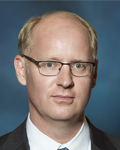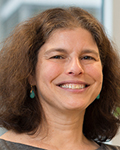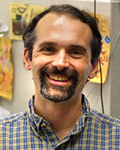Evolution of Neuroscience Graduate Programs Meeting the Needs of 21st Century Trainees
- Featured in:
- Best Practices in Neuroscience Training
Dec 01, 2018

January 01, 2018
12:00 PM - 1:00 PM EST
As the skills and needs of the 21st century biomedical workforce evolve, so too must the graduate programs that train neuroscience students.
In this webinar, faculty from three top U.S. universities will discuss how their graduate programs are:
- Broadening the pool of candidates recruited to graduate school.
- Re-examining the scientific topics and skills that students learn.
- Ensuring trainees are exposed to and prepared for the broad range of career options available for neuroscientists.
After attending this webinar, participants will be able to:
- Understand strategies for recruiting trainees from diverse backgrounds into graduate neuroscience programs and supporting them when they are in the programs.
- Understand successful initiatives to broaden graduate training to cover topics such as computational skills, science policy, education, or entrepreneurship.
- Know how to incorporate professional development programming that provides training for a diversity of career paths.
- Learn how to work within the overall university or institutional structure to meet evolving needs for recruiting, training, and helping students seek intended careers.
Speakers

Bruce Carter, PhD
Bruce Carter is a professor of biochemistry at Vanderbilt University School of Medicine. He also serves as associate director for education and training at the Vanderbilt Brain Institute and director of graduate studies for the neuroscience graduate program. His research focuses on the mechanisms regulating the development of the peripheral nervous system, particularly the regulation of cell death by the neurotrophins and their receptors. Carter earned his BS in chemistry and biology at Alma College and PhD in biological chemistry at the University of Michigan. He did postdoctoral training at the Max Planck Institute in Munich, Germany, and at Cornell University Medical School.

Tamara Hershey, PhD
Tamara Hershey is a professor of psychiatry and radiology at Washington University School of Medicine. She is also co-director of the neuroscience PhD program, director of the McDonnell Center for Systems Neuroscience, and lab chief of the neuroimaging labs at Washington University. Hershey's work is in the field of clinical neuroscience and neuroimaging, focusing on neurodevelopmental abnormalities in diabetes, Wolfram Syndrome, and other diseases. She earned her BA in Psychology from Earlham College and PhD in neuropsychology at Washington University, and she completed postdoctoral training at Washington University School of Medicine.

Nathan Urban, PhD
Nathan Urban is a professor of neurobiology at the University of Pittsburgh and co-director of the Center for the Neural Basis of Cognition, a joint center between the University of Pittsburgh and Carnegie Mellon University. Urban's research focuses on physiological and computational approaches to understanding sensory processing, especially olfaction. He earned his PhD in Neuroscience from the University of Pittsburgh and completed postdoctoral training at the Max Planck Institute for Medical Research in Heidelberg, Germany.

Rosalind Segal, MD, PhD
Rosalind A. Segal is a neurobiology professor at Harvard Medical School and Dana Farber Cancer Institute, and the Harvard Medical School Dean for Graduate Education. Her research has focused on the specialized properties of long axons. She uses sophisticated compartmented culture systems to analyze local protein synthesis critical for axonal survival and has developed novel therapies for chemotherapy induced peripheral neuropathy and other neurodegenerative disorders. In addition to her research, Segal is devoted to educating the next generation of neuroscientists. She has mentored numerous graduate students and postdocs and serves as a faculty advisor for the Harvard Women in Neuroscience program. Segal graduated summa cum laude from Harvard-Radcliffe College and received an MD and a PhD from Weill Cornell Medicine and Rockefeller University, respectively.

Rosalind Johnson
Rosalind Johnson is a program manager for the human genetics and neuroscience graduate programs in at Vanderbilt Brain Institute and Vanderbilt Genetics Institute. She is responsible for the day-to-day management and operations of both programs. She is also the first point of contact for students regarding their educational progression and plays a major role in the planning and execution of all program-related activities. Johnson is one of the founding members of the Vanderbilt Graduate Program Administrators and Coordinators group. She began her career at Vanderbilt University as the administrative assistant for department of molecular biology. With the merger of biology and molecular biology departments to form the new department of biological sciences, she was promoted to undergraduate and graduate education coordinator. Then, she became the program coordinator for the neuroscience graduate program, and following that, for the human genetics graduate program. Johnson received her bachelor’s degree in business administration from Tennessee State University.

Timothy Holy, PhD
Timothy Holy is the Alan A. and Edith L. Wolff Professor of Neuroscience at Washington University School of Medicine. His laboratory focuses on two major areas of research: studying the neural mechanisms of detecting and recognizing pheromones, and developing new optical methods for imaging neuronal activity. Holy received his BA in mathematics and physics from Rice University and MA in physics at Princeton University, and he earned his PhD in physics from Princeton University.
4 of 5 articles left
Login
or
Become a Member
to unlock content







